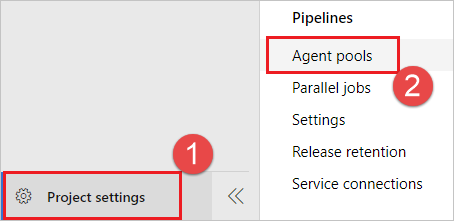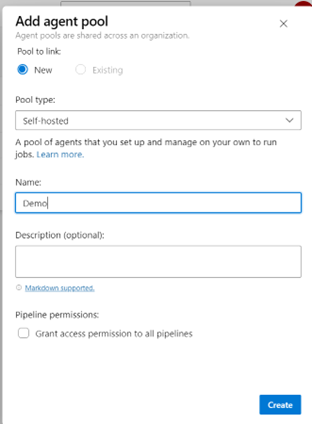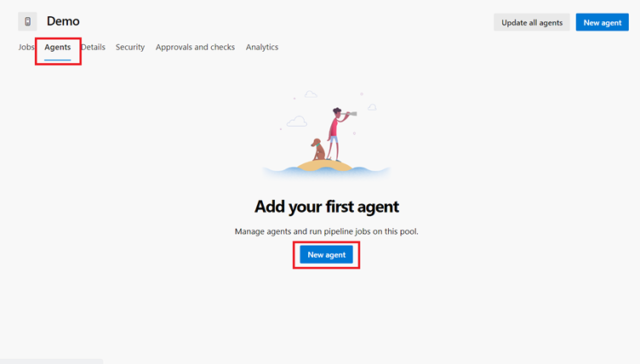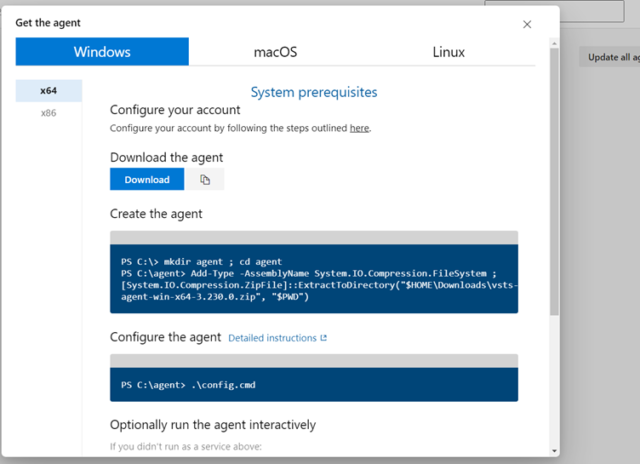DevOps has revolutionized the software development lifecycle, emphasizing collaboration, automation, and efficiency. In the realm of DevOps, the use of build and release pipelines is essential to streamline the process of delivering high-quality software. Two crucial components in this process are Microsoft Hosted Agents and Self-Hosted Agents. In this blog, we’ll delve into the dynamics of these agents, exploring their differences, use cases, advantages, and considerations for selecting the right option for your DevOps environment.
Microsoft Hosted Agents:
Microsoft Hosted Agents are virtual machines maintained and provisioned by Microsoft Azure DevOps Services. These agents come pre-installed with a wide range of popular development tools, frameworks, and build agents. As a result, they offer a convenient and hassle-free solution for running build and release pipelines without the need for users to manage the underlying infrastructure.
Advantages of Microsoft Hosted Agents:
-
Cloud-Powered Efficiency:
Microsoft Hosted Agents are virtual machines hosted in the Azure cloud.
Microsoft maintains and manages these agents, offering a hassle-free, ready-to-use environment for your pipelines.
The environment includes popular tools and software required for typical build and deployment tasks.
-
Scalability and Elasticity:
Azure DevOps dynamically allocates Microsoft Hosted Agents based on demand.
The scalability ensures your pipelines can scale seamlessly to accommodate varying workloads without manual intervention.
-
Consistent Environment:
Every time a pipeline runs, it does so in a fresh, consistent environment.
This consistency minimizes potential issues arising from discrepancies between development and production environments.
-
Maintenance-Free:
Users are relieved of agent maintenance tasks as Microsoft handles updates, patches, and overall agent health.
Self-Hosted Agents:
Conversely, self-hosted agents are agents that users set up and maintain on their own infrastructure. This could be on-premises servers, virtual machines, or cloud instances. Self-hosted agents give users greater control over the build and release environment and allow customization according to specific project requirements.
Advantages of Self-Hosted Agents:
-
Customizable Environments:
Unlike Microsoft Hosted Agents, Self-Hosted Agents run on machines you provide and maintain.
This allows for high customization, enabling you to tailor the environment to your needs.
-
Security and Compliance:
Self-hosted agents offer greater control over security measures and compliance requirements.
You can configure the agents to meet your organization’s security policies and standards.
-
Offline Capabilities:
Self-hosted agents are advantageous when the build or deployment environment requires access to resources that may not be available in the cloud.
They can operate offline, ensuring your pipelines are not dependent on external network connectivity.
-
Cost Considerations:
While Microsoft Hosted Agents provide a convenient, pay-as-you-go model, Self-Hosted Agents require you to manage the infrastructure, potentially leading to higher upfront costs.
-
Considerations for Microsoft Hosted Agents:
Ideal for projects with consistent build and deployment requirements.
Suitable for small to medium-sized projects with predictable workloads.
-
Considerations for Self-Hosted Agents:
Recommended for projects with specific tooling requirements or where customized environments are critical.
Suitable for larger projects with varying workloads that may benefit from on-premises infrastructure.
Limitations:
- While Microsoft Hosted Agents offer convenience, there are some limitations to consider:
- Limited Customization: Users are restricted in their ability to customize the hosted agent environment. If your project requires specific tools or configurations, the hosted agents might not be suitable.
- Build Timeouts: There are time limitations (60 minutes) on build execution for Microsoft Hosted Agents. Long-running processes may face interruptions, potentially impacting larger or resource-intensive projects.
- Self-hosted agents offer advantages in terms of network connectivity:
- On-Premises Integration: Organizations with on-premises infrastructure can seamlessly integrate self-hosted agents into their existing network, providing solutions for projects with strict data locality requirements.
- Firewall Configurations: Users can manage firewall configurations to control network access for self-hosted agents, enhancing security and compliance.
Steps to Create a New Self-Hosted Pool:
- Go to Project Setting
- Navigate to Agent Pool

- Click “Add Pool“. Select “Self-Hosted” as the pool type and enter the appropriate name. Click ” Create “.

- Navigate to the “Agents” Section to create an Agent.

- Download the agent & follow the below steps to configure the agent in your local.

- Run the “.\run.cmd” in your terminal to start the agent

Conclusion:
The choice between Microsoft Hosted Agents and Self-Hosted Agents in the dynamic DevOps landscape boils down to your project’s specific needs and constraints. Whether you prioritize the ease of a managed cloud environment or the flexibility of a self-hosted solution, understanding the nuances of each option empowers you to make informed decisions that align with your development and deployment goals. The key is to strike a balance that optimally meets your project’s requirements, scalability, and resource constraints.


Thank you for sharing good information.